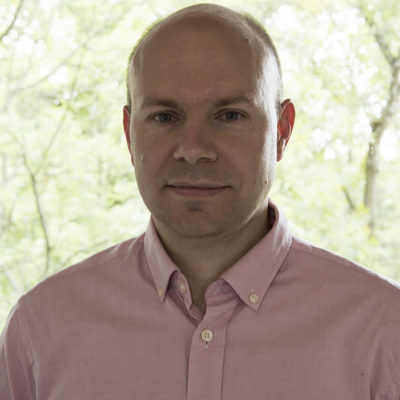Go back
“Our policy is an affirmation that the University of Edinburgh fully supports authors in their open access practices”
07/04/2022
In 2008 Harvard’s Faculty of Arts & Sciences voted unanimously to adopt a ground-breaking open access policy. Since then, over 70 other institutions, including other Harvard faculties, Stanford and MIT, have adopted similar policies based on the Harvard model. In Europe such institutional policies have, so far, been slow to get off the ground.
We are beginning to see that situation change.
The University of Edinburgh adopted its Research Publications & Copyright policy in 2021. In the following interview, Theo Andrew, Scholarly Communications Manager at the University of Edinburgh, explains how this policy was developed, describes the benefits for the University’s staff and shares his tips for any other institution that might consider adopting a similar policy.
cOAlition S: Could you, please, describe the author copyright policy you have adopted at your university?
Theo Andrew: The University of Edinburgh Research Publications & Copyright policy starts off by confirming that members of staff own the copyright to their academic publications in line with current custom and practice. Then, upon acceptance of publication each staff member agrees to grant the University of Edinburgh a non‐exclusive and irrevocable licence to make the accepted manuscript version of their scholarly articles publicly available under the terms of a Creative Commons Attribution (CC BY) licence. It is important to note that this assignation of rights happens automatically and no effort is required by the author to fill in forms or add rights retention statements to journal submissions.
After granting the licence each staff member then agrees to provide an electronic copy of the accepted manuscript in an appropriate electronic format. This article will then be deposited in the Institutional Repository and made open access upon publication. This policy applies to all peer-reviewed research articles, published in either a journal, conference proceeding or publishing platform, authored or co-authored while the person is a staff member of the University of Edinburgh.
cOAlition S: Why did the idea of adopting an institutional copyright/rights retention policy emerge?
We started drafting the policy with the intention of clearing up the ambiguity of copyright ownership, and ended up aligning our University policy with the Research Funder vision of immediate open access.
Theo Andrew: The previous University of Edinburgh Research Publications policy was over 10 years old. Given the many recent changes in the open access policy landscape it was looking extremely out of date. We began thinking about updating our institutional policy around the time when the UK-Scholarly Communications Licence and Model Policy was being developed. This initiative inspired us to start drafting some wording based loosely on their Model Policy. When Plan S was initially announced in 2018 we were further encouraged by the 10 guiding principles. In particular we were inspired by the statement that the group of cOAlition S funders encourage universities to align their policies and practices with the Plan S principles of immediate open access and rights retention. So we started drafting the policy with the intention of clearing up the ambiguity of copyright ownership, and ended up aligning our University policy with the Research Funder vision of immediate open access.
cOAlition S: How was agreement reached across the institution?
Theo Andrew: To start proceedings with a solid footing we initially consulted the institutional Legal Services team who were able to give us confidence that what we were proposing was legally viable and that we had backing from the University. We then sought to brief the University’s Senior Management Team and seek their support to proceed. With this in place we were able to navigate the various academic committees that govern the University – including, but not limited to, various College and School Research Committees, Knowledge Strategy Group, HR Policy Development Group, Research Policy Group – before ending up at the University Executive for formal approval. The Policy is effective from January 2022, but with a public launch in April, to tie in with UKRI open access policy.
cOAlition S: What challenges had to be overcome before it was agreed to adopt the policy?
Theo Andrew: One of the major challenges for us was navigating the complex governance structure of a large and diverse research intensive university. Getting the time and attention to be included on committee agendas – where open access is not necessarily a primary concern – was helped enormously and encouraged by research funders joining initiatives like Plan S.
A secondary, but massive challenge we had to manage, were significant time delays that were introduced due to high impact/priority external factors like Covid-19, UCU strike action, and the REF2021 exercise. The cumulative effect was to add about a year on to our overall implementation time.
cOAlition S: What are the advantages of adopting the policy for your researchers and your institution?
Theo Andrew: There are a number of routes available for authors to make their work open access (APCs, self-archiving, Read & Publish deals, Diamond OA etc) and the policy fits in and complements these various options. It helps to level the playing field and offers the choice to authors who wish to self-archive and make their research immediately open who would normally be bound by restrictive embargo periods.
The policy also allows our institution the flexibility to immediately react to future policy changes; for example, the long-anticipated next REF exercise will likely contain immediate open access requirements. This policy ‘future proofing’ puts the institution in a really good position as we won’t have to make changes as we will be already compliant.
One of the less tangible, but powerfully important benefits for our researchers is that the policy is an affirmation from the University that the institution they are part of fully backs and supports them in their open access practices. All too often many researchers feel that they are stuck in the middle of a conflict between research funders and the journal publishers. With an institutional policy offering a route to immediate open access through self-archiving, the authors are not acting as individuals, but have the weight of their institution behind them which empowers them to act.
With an institutional policy offering a route to immediate open access through self-archiving, the authors are not acting as individuals, but have the weight of their institution behind them which empowers them to act.
cOAlition S: As a conclusion, what are your three top tips for any other university considering adopting a similar permissions-based Open Access policy to yours?
Theo Andrew: 1) Ask for help from other institutions who already have a policy in place. We couldn’t have developed our policy in isolation and have benefited greatly from discussions with other institutions. In turn we are more than happy to share our knowledge and experience and have done so with a dozen universities in the UK.
2) There will be unforeseen knockbacks along the way so it is important to develop resilience. Flexibility and persistence are fantastic attributes.
3) Familiarise yourself with the governance structure of your institution and build trusted relationships with key people before starting out. Once you have proved to stakeholders that you can be trusted to deliver change the whole process of developing and implementing policy becomes much easier.
Recommended reading
More questions? Contact the Scholarly Communications Team: Help & support
Theo Andrew
Theo Andrew is the Scholarly Communications Manager based in the Library Research Support section at the University of Edinburgh. His work focuses on enabling researchers and students to adopt open research practices in their everyday work activities. Theo leads the Scholarly Communications Team who provide specialised training, tools, advocacy and support services for Open Research at the University of Edinburgh. Prior to working in the Library, Theo trained as a Field Geologist and has a PhD in Geoscience.
View all posts by
Theo Andrew


